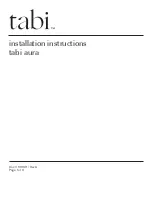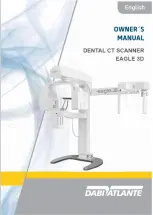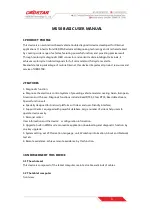
3
Read this entire operator’s manual before operating the CADD
®
-Solis VIP ambulatory infusion pump.
Failure to properly follow warnings, cautions, and instructions could result in death or serious injury
to the patient.
Contraindications
•
The pump is not to be used for delivery of blood or cellular blood products, as blood and cellular blood
products will be damaged by the pumping mechanism.
•
This pump is not to be used in any intra-articular space infusion.
Warnings
•
This operator’s manual should be used by authorized clinicians and system administrators only. Do not
permit patients to have access to this manual, as the information contained allows complete access to
all programming and operating functions.
•
To avoid explosion hazard, do not use the pump in the presence of flammable anesthetics or explosive
gases.
•
For patients likely to be adversely affected by unintended operations and failures, including interrupted
medication or fluid delivery from the device, close supervision and provision for immediate corrective
action should be provided in order to assure minimum medication delivery interruption. Pump failure
suspends medication delivery, and unintended pump operations could lead to a variety of consequences
for the patient.
•
If the pump is used to deliver life-sustaining medication, an additional pump must be available,
and close supervision and provision for immediate corrective action should be provided to assure
minimum medication delivery interruption in the event of a pump failure. Pump failure suspends
medication delivery.
•
The user should ensure that the performance offered by the pump is fit for the intended use and that the
pump is not used in any way or for any purpose other than its intended use.
•
If the pump is dropped or hit, inspect it for damage. Do not use a pump that is damaged or not
functioning properly. Contact Smiths Medical Customer Service to return a pump for service.
•
Use of a syringe with the CADD
®
administration set may result in UNDERDELIVERY of medication.
Syringe function can be adversely affected by variations in plunger dimension and lubricity, which can
result in greater force required to move the syringe plunger. A syringe plunger loses lubrication as it
ages and as a result, the amount of underdelivery increases, which could on occasion, be significant.
Therefore, the type of medication and delivery accuracy required must be considered when using a
syringe with the CADD
®
-Solis VIP ambulatory infusion pump.
The volume remaining in the syringe must be regularly compared to the displayed values on the
pump (for example, Reservoir Vol. and Total Given) in order to determine whether underdelivery of
medication is occurring. If necessary, appropriate action must be taken.
•
Do not administer drugs to the epidural space or subarachnoid space unless the drug is indicated for
administration to those spaces.
•
To prevent the infusion of drugs that are not indicated for epidural space or subarachnoid space
infusion, DO NOT use administration sets that incorporate injection sites.
•
If a CADD™ medication cassette reservoir, CADD
®
extension set, or CADD
®
administration set is used
for epidural space or subarachnoid space drug delivery, it is strongly recommended that it be clearly
differentiated from those used for other routes of infusion (for example, by color coding or other means
of identification).
•
If the air detector is turned off, the pump does not detect air in the fluid path. It is recommended that
you periodically inspect the fluid path and remove any air to prevent air embolism.
•
When the upstream occlusion sensor is turned off, the pump does not detect occlusions upstream
between the pump and the reservoir. Periodic inspection of the fluid path for kinks, a closed clamp,




































